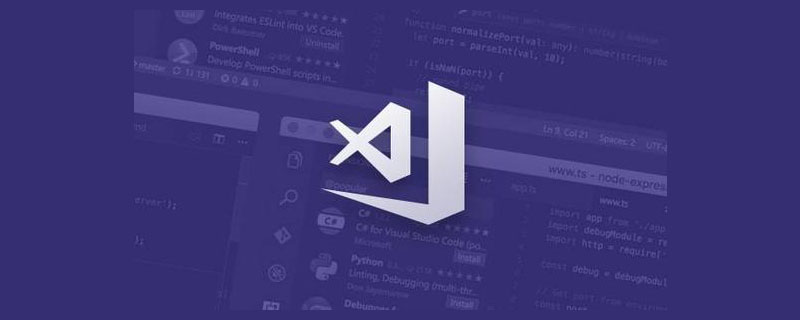 Backend Development
Backend Development PHP Tutorial
PHP Tutorial The use of cost calculation functions developed by PHP in enterprise resource planning (ERP) systems
The use of cost calculation functions developed by PHP in enterprise resource planning (ERP) systemsThe use of cost calculation functions developed by PHP in enterprise resource planning (ERP) systems
Introduction:
In today's highly competitive business environment, enterprises need to effectively manage their resources to reduce costs and improve efficiency. To achieve this goal, many businesses have adopted enterprise resource planning (ERP) systems. Developing a cost calculation function in the ERP system can help companies accurately calculate the cost of goods and services, thereby making better decisions. This article will explore how to develop this functionality using PHP and provide code examples.
- Data modeling:
First, we need to perform data modeling on the cost calculation function. In the ERP system, cost calculation usually involves the following aspects of data: - Goods and services (name, description, unit price of product, etc.)
- Raw materials and labor costs (name of raw materials , quantity, unit price, labor cost, etc.)
- Consumables (items included in cost calculations but not goods or labor costs)
- Sales volume and sales volume
In PHP, you can use an object-oriented approach to define the classes of the above data and establish corresponding relationships.
class Product {
private $name;
private $description;
private $price;
public function __construct($name, $description, $price) {
$this->name = $name;
$this->description = $description;
$this->price = $price;
}
// Getter and Setter methods
// Other methods like calculateCost(), etc.
}
class RawMaterial {
private $name;
private $quantity;
private $unitPrice;
public function __construct($name, $quantity, $unitPrice) {
$this->name = $name;
$this->quantity = $quantity;
$this->unitPrice = $unitPrice;
}
// Getter and Setter methods
// Other methods like calculateCost(), etc.
}- Cost calculation:
With the data model, we can implement the cost calculation function. In an ERP system, there is usually a cost calculation module that can perform cost calculations on goods and services. We can create a CostCalculation class in PHP to implement this function.
class CostCalculation {
private $products;
private $rawMaterials;
public function __construct($products, $rawMaterials) {
$this->products = $products;
$this->rawMaterials = $rawMaterials;
}
public function calculateProductCost($productId) {
$product = $this->products[$productId];
$rawMaterialsCost = 0;
// Calculate the cost of raw materials used in the product
foreach ($product->getRawMaterials() as $rawMaterialId => $quantity) {
$rawMaterial = $this->rawMaterials[$rawMaterialId];
$rawMaterialsCost += $rawMaterial->calculateCost() * $quantity;
}
// Calculate the total cost of the product
$totalCost = $rawMaterialsCost + $product->getLaborCost();
return $totalCost;
}
}- Usage example:
Here is an example of using the previously mentioned costing function:
// Create some products
$products = [
1 => new Product("Product 1", "Description 1", 10),
2 => new Product("Product 2", "Description 2", 20),
// Add more products here
];
// Create some raw materials
$rawMaterials = [
1 => new RawMaterial("Raw Material 1", 2, 5),
2 => new RawMaterial("Raw Material 2", 3, 8),
// Add more raw materials here
];
// Create a CostCalculation instance
$costCalculation = new CostCalculation($products, $rawMaterials);
// Calculate the cost of a product
$productCost = $costCalculation->calculateProductCost(1);
echo "The cost of Product 1 is: $" . $productCost;In the above example, we created some products and An instance of raw materials and calculating the cost of a product through the CostCalculation class. In practical applications, we can expand and optimize functions according to specific business needs to meet the needs of enterprises.
Conclusion:
This article introduces how to use PHP to develop cost calculation functions and use them in enterprise resource planning (ERP) systems. Through the implementation of data modeling and cost calculation, enterprises can more accurately calculate the cost of goods and services, helping decision makers make more informed decisions. Of course, this article only provides a simple example, and more complex logic and functions may be required in actual applications. Readers can further develop and optimize according to their own needs.
The above is the detailed content of The use of cost calculation functions developed by PHP in enterprise resource planning (ERP) systems. For more information, please follow other related articles on the PHP Chinese website!
 微信小程序中PHP开发的翻页特效实现方法Jun 01, 2023 pm 01:51 PM
微信小程序中PHP开发的翻页特效实现方法Jun 01, 2023 pm 01:51 PM在微信小程序中,PHP开发的翻页特效是非常常见的功能。通过这种特效,用户可以轻松地在不同的页面之间进行切换,浏览更多的内容。在本文中,我们将介绍如何使用PHP来实现微信小程序中的翻页特效。我们将会讲解一些基本的PHP知识和技巧,以及一些实际的代码示例。理解基本的PHP语言知识在PHP中,我们经常会用到IF/ELSE语句、循环结构,以及函数等一些基本语言知识。
 微信小程序中PHP开发的常用工具库介绍Jun 01, 2023 pm 07:40 PM
微信小程序中PHP开发的常用工具库介绍Jun 01, 2023 pm 07:40 PM随着微信小程序的普及和发展,越来越多的开发者开始涉足其中。而PHP作为一种后端技术的代表,也在小程序中得到了广泛的运用。在小程序的开发中,PHP常用工具库也是很重要的一个部分。本文将介绍几款比较实用的PHP常用工具库,供大家参考。一、EasyWeChatEasyWeChat是一个开源的微信开发工具库,用于快速开发微信应用。它提供了一些常用的微信接口,如微信公
 如何利用PHP开发商城的满额赠礼功能May 22, 2023 am 10:02 AM
如何利用PHP开发商城的满额赠礼功能May 22, 2023 am 10:02 AM网上购物已经成为人们日常生活中不可或缺的一部分,因此,越来越多的企业开始关注电商领域。开发一款实用、易用的商城网站也成为了企业提高销售额、拓展市场的必要手段之一。在商城网站中,满额赠礼功能是提高用户购买欲望和促进销售增长的重要功能之一。本文将探讨如何利用PHP开发商城的满额赠礼功能。一、满额赠礼功能的实现思路在商城开发中,如何实现满额赠礼功能呢?简单来说就是
 微信小程序中PHP开发的加密和解密实现方法Jun 01, 2023 am 08:12 AM
微信小程序中PHP开发的加密和解密实现方法Jun 01, 2023 am 08:12 AM随着微信小程序在移动应用市场中越来越流行,它的开发也受到越来越多的关注。在小程序中,PHP作为一种常用的后端语言,经常用于处理敏感数据的加密和解密。本文将介绍在微信小程序中如何使用PHP实现加密和解密。一、什么是加密和解密?加密是将敏感数据转换为不可读的形式,以确保数据在传输过程中不被窃取或篡改。解密是将加密数据还原为原始数据。在小程序中,加密和解密通常包括
 PHP开发中提供效率的VSCode插件推荐(值得收藏)Mar 30, 2021 pm 07:31 PM
PHP开发中提供效率的VSCode插件推荐(值得收藏)Mar 30, 2021 pm 07:31 PM本篇文章给大家推荐一些VSCode+PHP开发中实用的插件。有一定的参考价值,有需要的朋友可以参考一下,希望对大家有所帮助。
 微信小程序中PHP开发的滑动验证码实现方式Jun 01, 2023 pm 09:01 PM
微信小程序中PHP开发的滑动验证码实现方式Jun 01, 2023 pm 09:01 PM随着互联网的快速发展,网络安全问题也变得越来越严峻。针对恶意攻击、刷单等安全威胁,很多网站和应用程序都使用了验证码来保护用户信息和系统安全。在微信小程序中,如何实现一个安全可靠的滑动验证码呢?本文将介绍使用PHP开发的滑动验证码实现方式。一、滑动验证码的原理滑动验证码是指在验证用户身份时,通过用户在滑块上滑动完成验证过程。其原理是将一张图片分成两部分,一部分
 微信小程序中PHP开发的文本框自动完成功能实现方法Jun 01, 2023 pm 07:42 PM
微信小程序中PHP开发的文本框自动完成功能实现方法Jun 01, 2023 pm 07:42 PM随着微信小程序的普及,各类开发需求也日渐增多。其中,文本框自动完成功能是小程序中常用的功能之一。虽然微信小程序提供了一些原生的组件,但是有一些特殊需求还是需要进行二次开发。本文将介绍如何使用PHP语言实现微信小程序中文本框自动完成功能。准备工作在开始开发之前,需要准备一些基本的环境和工具。首先,需要安装好PHP环境。其次,需要在微信小程序后台获取到自己的Ap
 微信小程序中PHP开发的自动更新方法Jun 01, 2023 pm 11:40 PM
微信小程序中PHP开发的自动更新方法Jun 01, 2023 pm 11:40 PM近年来,移动互联网的快速发展和移动终端的普及,让微信应用程序成为了人们生活中不可或缺的一部分。而在微信应用程序中,小程序更是以其轻量、快速、便捷的特点受到了广泛的欢迎。但是,对于小程序中的数据更新问题,却成为了一个比较头疼的问题。为了解决这一问题,我们可以使用PHP开发的自动更新方法来实现自动化数据更新。本篇文章就来探讨一下微信小程序中PHP开发的自动更新方


Hot AI Tools

Undresser.AI Undress
AI-powered app for creating realistic nude photos

AI Clothes Remover
Online AI tool for removing clothes from photos.

Undress AI Tool
Undress images for free

Clothoff.io
AI clothes remover

AI Hentai Generator
Generate AI Hentai for free.

Hot Article

Hot Tools

Dreamweaver CS6
Visual web development tools

WebStorm Mac version
Useful JavaScript development tools

Notepad++7.3.1
Easy-to-use and free code editor

MinGW - Minimalist GNU for Windows
This project is in the process of being migrated to osdn.net/projects/mingw, you can continue to follow us there. MinGW: A native Windows port of the GNU Compiler Collection (GCC), freely distributable import libraries and header files for building native Windows applications; includes extensions to the MSVC runtime to support C99 functionality. All MinGW software can run on 64-bit Windows platforms.

Atom editor mac version download
The most popular open source editor





